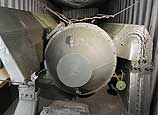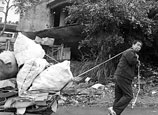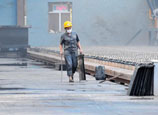
Govt claims no hikes are in sight as pressure grows over transit subsidies
With Beijing's transport authority denying it has plans to raise fares, experts are suggesting a solution based around flexible ticket prices on buses and subways.
As financial pressure increases over subsidies for public transportation, the government should come up with a new range of fares based on the length of journey, time of day and type of carriage, said Zhang Zhuting, a professor specializing in traffic law at the Ministry of Transport's Management College.
"The healthy development of the subway system should neither rely heavily on high subsidies over the long term nor impose financial burden on commuters," he said.
On Tuesday, the Beijing Transport Commission denied media reports that it will increase subway fares in the near future and said the city will maintain its low-fare policy on subways and light rails to further encourage the use of public transportation.
Beijing has the cheapest public transportation system in the country after it reduced its subway fare from 3 yuan ($0.49) to 2 yuan regardless of mileage and slashed bus fares to 0.4 yuan in 2007 to encourage people to use public transportation and ease traffic congestion.
The media reports on the possible fare rise came after the commission was found to have conducted an audit of the transport industry last month, aimed at studying the cost of running subways and buses. Some media reports described it as preparation for a possible fare rise.
The commission told China Daily on Wednesday that no subway fare hike is being considered in the near future. It said it will further work toward boosting public transportation and relieving traffic pressure.
Despite the government's denial, many commuters suspect a subway fare increase is likely.
Xu Jun, a software engineer in Beijing who takes the subway to work, said a price hike would discourage the use of public transportation.
"The city has had an increase in taxi fares and it will be too much if the subway costs more as well," he said.
Growing allocation
However, some experts say that leaving fares unchanged will put a greater financial burden on the municipal government, which allocates billions of yuan each year to subsidize public transportation.
In 2011, the city earmarked 15.69 billion yuan for buses and subways. The figure rose to 17 billion yuan in 2012, according to the Beijing Finance Bureau.
With the extension of the subway system to new parts of the city, along with an increase in passenger volume and rising fuel costs, the subsidy for public transportation will continue to rise.
The operating distance of the urban rail transit in Beijing was 142 kilometers in 2007 and it rose to 372 km in 2011. After reaching 456 km this year, the figure is expected to exceed 700 km by the end of 2015.
Zhang at the Management College said the government subsidy comes from taxpayers, and the subway and bus allowance has excessively devoured public spending, which also has to pay for medical, educational, housing and social security sectors.
In addition, ticket prices that are set too low would result in inefficient transportation, with people who do not have to take public transport joining the crowd during rush hour and increasing pressure on the system, he said.
Lu Jiehua, a professor at Peking University, said the financial subsidy will prove too much of a burden in the long term, as the increase in fiscal revenue is not keeping pace with the rise in public transportation subsidies.
However, the government should not shift the burden totally to commuters, he said.
Adjustable prices
Zhang suggests a flexible subway fare, based on mileage, timing and different carriages.
"Charging higher fares for those traveling during peak hours could greatly reduce unnecessary journeys and benefit those who have to rush to work or run urgent errands," he said.
In addition, setting up special carriages with higher fares would also reduce crowding in certain carriages and attract more people who would normally drive private vehicles on the road, thus easing the pressure above ground, he said.
"The subway fare should take into account both the fiscal capacity as well as the financial burden on residents," said Xu Kangming, an international consultant on urban transportation.
His view is echoed by Yu Lingyun, a traffic law professor at Tsinghua University, who added that the government should disclose more information on the cost and revenue of bus and subway systems in recent years, while informing the public of current problems.
















 China’s weekly story
China’s weekly story
(2013.7.5-7.12)


![]()
